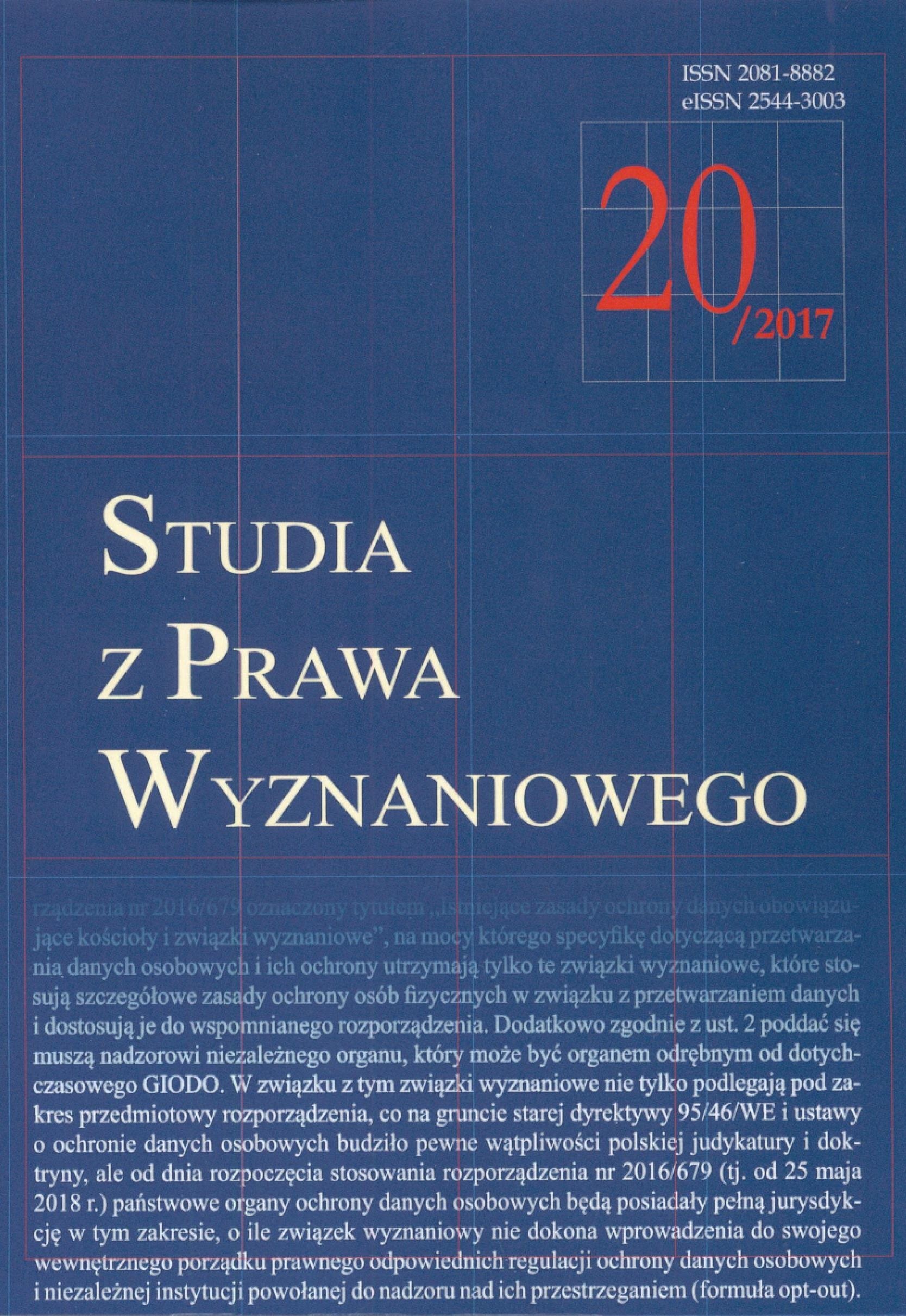Gouvernance de la religion et liberté de conscience
Governance of religion and freedom of conscience
Author(s): Claire AguilonSubject(s): Politics / Political Sciences, Law, Constitution, Jurisprudence, Human Rights and Humanitarian Law, Political Sciences, Governance, Islam studies, Philosophy of Law, Sociology of Religion
Published by: Katolicki Uniwersytet Lubelski Jana Pawła II - Wydział Prawa, Prawa Kanonicznego i Administracji
Keywords: freedom of conscience; religious epistemology; democracy; civil rights; political rights; religious freedom; freedom of conscience and religion
Summary/Abstract: The influence of religion on the freedom of conscience cannot be defined in simple terms. Religion is often conceived as limiting the freedom of conscience. However, from the perspective of the philosophy of religion it is necessary to underline the significance of the adoption of democracy as a principle of government. The limitation of the freedom of conscience by religion could be explained, on an anthropological level, by the identity function realized by religion. Nevertheless, religion can exist without being accepted by all. Beyond the evidence of a possible coexistence of religion and political pluralism, religion inherently implies the recognition of the freedom of conscience. The respect for the freedom of conscience results from the human condition itself. Religion makes it possible to transcend one’s cultural identity. In return, the freedom of conscience is based on a faith in the equal value of the conscience of every human being. The latter is recognized not only as the means but also as one of the purposes of political power. Religion and the freedom of conscience seem to derive from common foundations. The legal recognition of the freedom of conscience has a concomitant impact on religion by the regulation of its exercise.
Journal: Studia z Prawa Wyznaniowego
- Issue Year: 2017
- Issue No: 20
- Page Range: 135-166
- Page Count: 32
- Language: French

